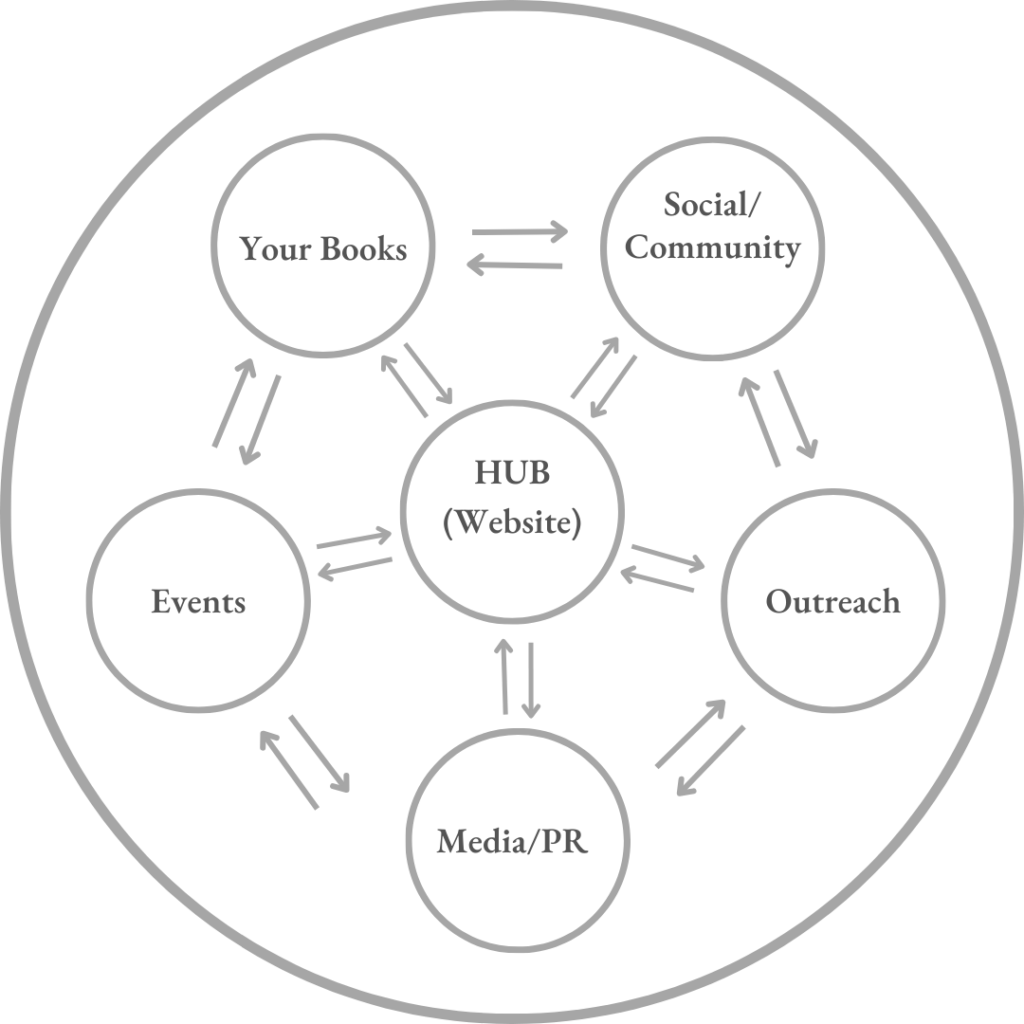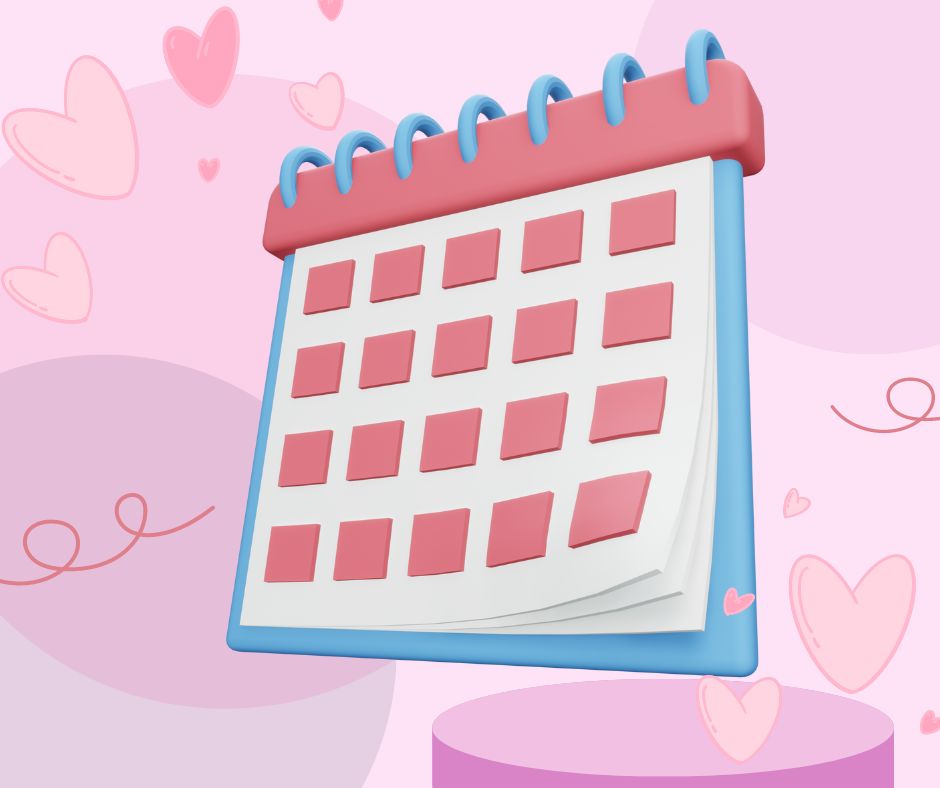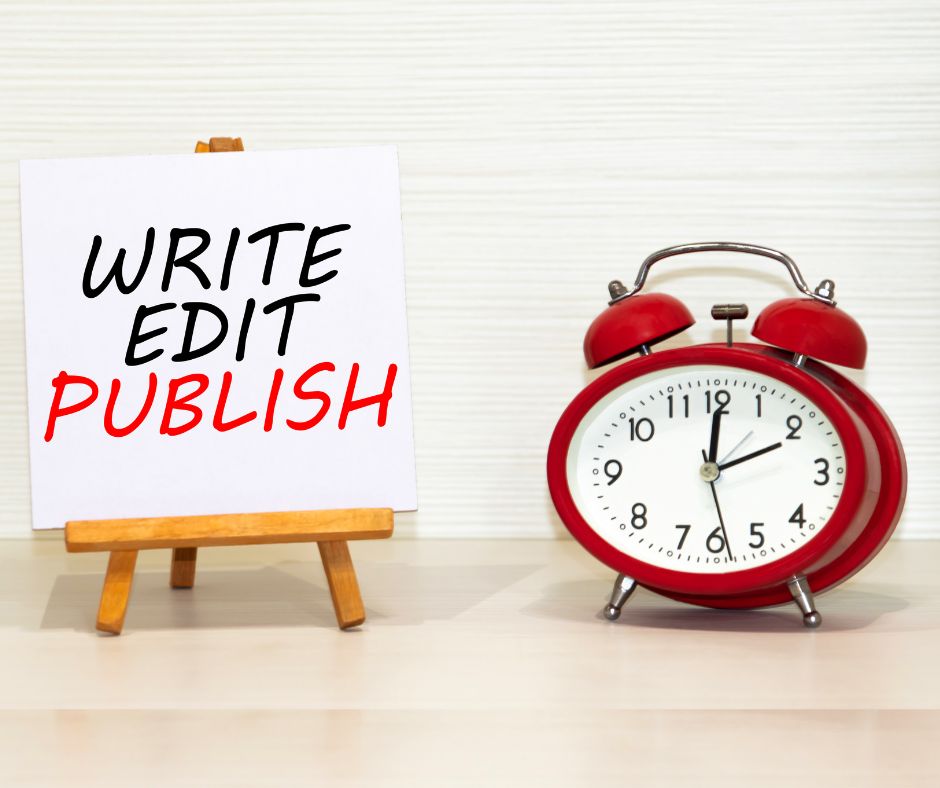When and How to Start Marketing Your Romance Book

Table of Contents
On a recent WWH member call, the question of when to start marketing your book came up. The short answer I always give is NOW. It’s never too early to talk about your book.
But how do you market something that isn’t finished? In this post, we’ll cover why and how you should start marketing your book the minute you decide to write it.
The Importance of Early Book Marketing
The biggest reason to market your book early is to insure you have buyers on the day of publication.
Using presale setup with online retailers, you can build book sales even before it is released. But even if your book is a year or more out from publishing, promoting your book during the writing process builds awareness and excitement among your audience. This leads to more pre-orders and strong sales when your book is released.
Second, once your book is published, you have a new author hat to wear; marketers. Starting your marketing early will help you develop the strategies and routine you’ll need to do both; write and sell books.
Building your author platform early helps you:
- Establish your brand as an author
- Grow a loyal fanbase
- Create networking opportunities
- Develop marketing skills
Building Your Author Platform
What is an author platform?
My favorite definition of author platform is from Jane Friedman, who describes author platform as the representation of your authority, visibility, and reach to a target market. What does that mean?
- Authority has to do with how much influence you have.
- Visibility and reach represents the number of people who know and listen to you.
- Your target market is your most likely reader.
Your goal in platform building is to increase your influence and reach to your readers, and yes, you can start building it before your book is finished.
First Steps to Building Your Author Platform
 Admittedly, there are many moving parts to building and maintaining an author platform. It feels like plate spinning to me. The very basics should include:
Admittedly, there are many moving parts to building and maintaining an author platform. It feels like plate spinning to me. The very basics should include:
- Author website: Your website is your main online spot. I like to call it a hub as everything you do should lead back to it, and it leads to all the other things (books, social, etc). Today, while there is a bit of a learning curve to making a website, you don’t need to be tech-minded. If you can drag and drop, and know how to use Word or Google Docs, you can build a website. If you want, you can add a blog to your website, which can be a fun why to keep your target market informed. Need blog post ideas? Here’s an article with 90+ ideas on blog posts.
- Email List: Yes, social media is free, but email is the king of building your fan list and having sales each time you launch book. It takes no commitment to follow or like on social media. Plus social platforms may or may not feed your messages to your followers. But when someone signs up for your email, they’ve raised their hand and said, “Please send me information about you and your books.” Plus you own it. You’re not at the whims of an algorithm or bot. For ideas on what to send, check out this post on 18 Effective Email Ideas for Romance Authors
- Social media: Social platforms let you talk directly with fans. The key to success at social media for your author platform is to pick platforms where your readers are.
| Platform Element | Purpose | Key Features |
|---|---|---|
| Author Website | Central hub for information | About page, book details, blog |
| Email List | Direct communication | Signup incentive, exclusives or early access, specials, ARC readers, regular newsletters |
| Social Media | Direct reader engagement | Writing updates, teasers, industry news |
Next Steps to Author Platform Building
I view marketing as a wheel. At the center is your website (hub), and everything else is interconnected spokes. Once you have your foundation set up (website, email, social), you can reach out and invite people back to your hub. This involves social media, but I’d encourage you to start including networking and writer/reader events.
Networking
For Networking, join writing groups in your community and/or online. Consider joining general writing communities, as well as those that are genre specific.
Join online groups as well. Here you can gain a lot of information about the industry, tips, support, and more.
Join reader groups to gain insight into what readers are looking for in your genre and building relationships with them. (Note: don’t spam groups with Buy My Book).
Visit book bloggers, Booktubers and Booktokers that talk about your type of book. Learn how they talk about books and how you can reach out to them for a possible review or mention when your book is ready.
Events
I cannot overemphasize how much you can gain from events, including:
- Information and education
- Networking (I found a publisher and an agent through event networking)
- Inspiration, motivation, and support
- Glean ideas (swag, banners, etc)
- Meet other writers and readers
As you get closer to publishing, you’ll want to include the other spokes, making sure your hub information is in your book, doing outreach to be a guest on podcasts and other media.

The spokes:
2) Your books. Whether you’re self-published or traditionally published, include your hub website URL in your books. This makes it easy for readers to find your other books, as well as to learn more about you, your events, and engage with you on social media.
3) Social/Community. Today, consumers like to engage with businesses, including authors. Members of your community will not only buy your books, but if they like them, will leave reviews and tell others about them, which will increase your authority, and expand your reach and influence. Growing a community includes engaging in social media, building an email list, and organizing a street team.
4) Media/PR. Being featured in the media boosts your credibility and expands your exposure and influence. Your website (hub) should include a media kit with your bio and information about your books. Send press releases to media outlets targeting your reader market when your book is ready to launch or has a tie-in to news. Don’t forget to include a link to your online media kit. Consider signing up to receive the HARO report (Help A Reporter Out), which emails media requests for guests, experts, and interviewees on a variety of topics.
5) Outreach. Authors can’t rely on Amazon or sending a press release to generate interest in their books. They need to reach out to resources that are designed for their specific reader market. The advantage of outreach is that it’s free and effective at building authority, while also expanding your reach. Outreach methods involve reaching out to bloggers for articles or author interviews, guesting on podcasts, and engaging in groups and forums. Offline outreach involves submitting articles to print media and attending reader-focused groups or meetings.
6) Events. Success as an author requires getting out and mingling with other writers and readers. Every author should attend workshops, seminars or conferences geared toward writers and readers each year. Once you have a book published, try to attend events as an author speaker or panelist, or pay to have a table from which to sell and sign your books. This will boost your book sales. I sell way more books at events I speak at than if I don’t speak or sit on a panel. Other places to set up events include libraries and organizations that target your ideal reader. Consider participating in online events, such as a blog or podcast tours, or hosting or being an author guest at a Facebook book party.
Platform Building Plan for New Authors
We’ve already established the foundation for platform building and next steps once your book is ready to launch. But let’s break that down into your phases of writing.
Pre-writing Phase: Research and Planning
Begin your marketing journey before you write your first word. Find out who your readers will be, look at what’s popular in your genre, and figure out what makes your book special. This is especially important if you plan to write-to-market. But even if you’re not focused on writing-to-market, knowing the market can be helpful in understanding how to make your book appeal to readers.
- Identify your ideal readers
- Study successful books in your genre
- Develop a marketing budget
During the Writing Process: Building Anticipation
While you’re writing, start building excitement for your book. Start by creating a marketing calendar (this post includes ideas, plus you can use many of the 90+ ideas on blog posts for social media and email as well). You find other marketing ideas here: Boost Your Book’s Visability: 30 Five Minute Marketing Tasks.
During this stage, gather reader attention by sharing tidbits from your WIP, research, and other content that will appeal to them. If you’re writing a sweet cowboy romance, include snippets of writing, pictures of handsome cowboys, and things you’ve learned about living on a ranch. I wrote a book once that involved an engagement ring people were willing to kill for to obtain. I researched the Hope Diamond, which had just been determined to be a cutting from the French Blue, lost after the French Revolution. I shared that information on social media, blog, and email.
You can share behind the scenes or trips you make that might represent the location of your story. You can do polls related to something in your story. I’ve done polls on best romantic couple and top chocolate.
TIP: Many new authors will post about writing itself. While this isn’t bad, your goal is to appeal to readers, not other writers. So focus on what your ideal reader would be interested in knowing about.
Post-completion: Ramping Up Promotional Efforts
After you finish writing, boost your marketing efforts. Start a big promotional campaign that includes social media, book signings, and reaching out to the media (check the marketing wheel above). Push presales. Set up online and in-person launch events. Reach out for podcast or other media interviews. Keep posting per your marketing calendar.
Remember, marketing doesn’t stop after your book is out. Keep promoting it well after it’s released.
| Marketing Phase | Key Activities |
|---|---|
| Pre-writing | Market research, audience identification, strategy planning |
| Writing | Teaser content, progress updates, engaging with potential readers |
| Post-completion | Book launch events, media interviews, ongoing promotional campaigns |
Keep On Keepin’ On
Along with building a ready-to-buy fan base, starting your marketing early will help you develop a marketing routine. Marketing takes time. It will be easier for you to ease into it, test different options, and create a routine that works, so when your book comes out, you’re not running around like a crazy person trying to be in all places at once.
Once your book is out, it’s time to get ready for the next book, while still keeping eyes on the published book. Remember when I said marketing is like plate spinning? This is where that comes in the most. You have to keep pushing your backlist, while also hyping new releases. Starting now to figure out how you’ll do that will make the process easier as your author platform grows.
Organize Your Book Project in One Place
 The Romance Author’s Novel Organizer helps you keep track of your book from idea to sales, including an entire section on marketing:
The Romance Author’s Novel Organizer helps you keep track of your book from idea to sales, including an entire section on marketing:
- Tips for building your author platform
- A content cheat sheet
- Content ideas
- Book launch checklist
- 12-Month Calendar to organize your marketing tasks.
You can get immediate access to a PDF digital version of the Romance Author’s Novel Organizer from my shop or order a print copy from Amazon.
Do you have other tips or ideas for when and how to market your book as a new author? Let me know in the comments below.






Responses